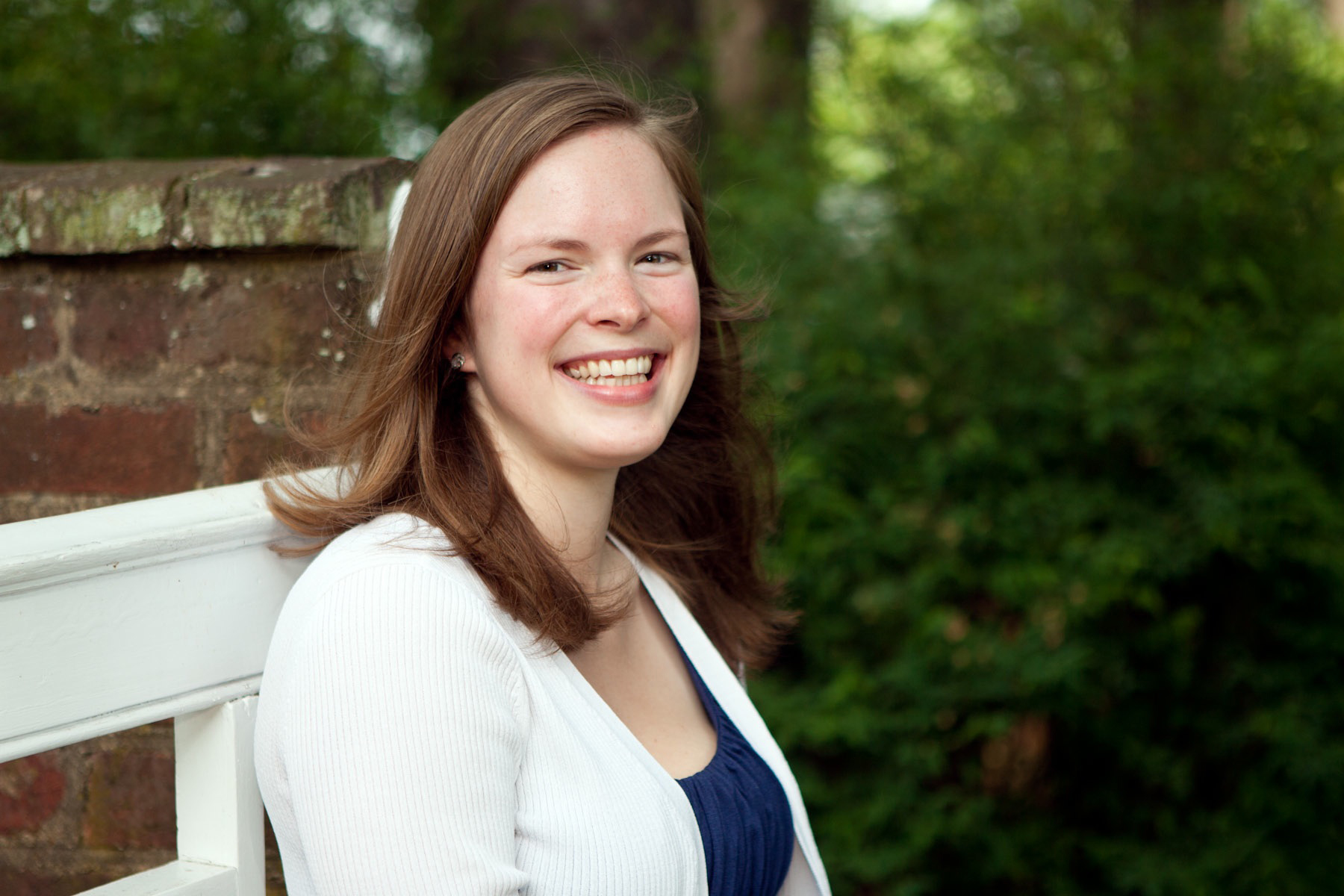May 17, 2012 — In a tough job market, it's helpful to cultivate a specific expertise, according to Lilly Frost, who will graduate Sunday with a master's degree from the University of Virginia's Frank Batten School of Leadership and Public Policy.
She has done just that over her five years at U.Va., becoming an Arabic-speaking, budding Middle East expert who has visited the region three times, first with U.Va.'s summer study abroad program in Jordan, then twice for scholarship-funded research that formed the basis of her undergraduate and graduate thesis projects.
Her strategy seems to be working. Starting this winter, she landed a job as a consultant to the World Bank division focused on the Middle East, assessing the social safety nets in seven Persian Gulf countries.
So how did this soft-spoken native of Gloucester (near Williamsburg) become a young woman who comfortably transits the Arab world, having spent a total of 16 weeks in Jordan, Lebanon, Egypt, Syria and Turkey?
Along with having had an interest in the region since high school, she said, she's nearly fluent in Arabic after five years of study at U.Va., and her advanced French language skills are also helpful in Syria and Lebanon, where French is widely spoken.
The Batten School's broad-based, flexible curriculum allowed her to repeatedly focus on the Middle East, but from a wide variety of perspectives and disciplines, from looking at political institutions to econometric statistical analysis.
With the freedom to select her own paper and project topics, in a class on the changing context of public policy, she examined how shifting U.S. policies toward Iran were influenced by globalization. For another research project, she examined the reasons for U.S. intervention or non-intervention during the Arab Spring in four countries: Egypt, Bahrain, Libya, and Syria.
The Middle East is "so full of issues, I never get bored," she said.
In January 2011 – weeks after the first events in what would become the Arab Spring – Frost was in Jordan doing research on the influence of Al-Jazeera Arabic news on Jordanian political attitudes for her undergraduate honors thesis. (She double-majored in political and social thought and foreign affairs in the College of Arts & Sciences.)
As Jordanians watched the events in Tunisia – broadcast live by Al-Jazeera – the events "didn't seem major" at first, Frost said. The turning point came when Tunisian President Zine al-Abidine Ben Ali stepped down after 23 years in power. Before that moment – later reinforced by the removal of Egyptian President Hosni Mubarak – the region's repressive authoritarian regimes had for years seemed too strong to allow major reforms. People across the Middle East value freedom, transparency and democracy, Frost said, and witnessing Ben Ali's ouster allowed them to think "Wow, maybe we really can see some reforms," she said.
In Jordan, Frost conducted almost 60 interviews with people from all sectors of society, from low-income women to graduate students, middle-class Amman residents to business owners. The interviews were conducted before and after Ben Ali fled Tunisia, giving a point of comparison.
It's "quite remarkable and impressive" that as an undergraduate, Frost was able to line up so many interviews and gain access to so many sectors of Jordanian society, said Frost's thesis adviser, William Quandt, a politics professor and Middle East expert who helped craft the 1978 Camp David accords between Israel and Egypt as a former senior staff member of the National Security Council and aide to President Carter.
Frost returned to the Middle East in January for her applied policy project, the Batten School's variation on a thesis, done for a real client. Working for the non-governmental organization American Near East Refugee Aid, she examined the effectiveness of an urban agriculture project in a Palestinian refugee camp in Lebanon.
Frost's extracurricular leadership at U.Va. centered around ways to get students more engaged, informally, with topics of interest, she said.
As chair of the Week in Review group – based in the Batten School, but open to all students – Frost convened weekly student discussions of current international events, such as war in Sudan or the European Union debt crisis. The informal setting allowed students to more deeply engage such issues "with no pressure, no consequences and no risk," she said.
A former Lawn resident, Echols Scholar and Raven Society member with a 3.9 grade-point average at Batten, Frost has emerged as a leader in numerous situations and groups, thanks to her natural charm and sense of command, accessibility and adroit people skills, combined with humility and a great sense of humor, said Wendy Perry, the Batten School's director of student affairs and registrar. Frost's enthusiasm whenever she throws herself into a project is another defining trait, Quandt said.
With several published papers already under her belt, Frost may eventually enroll in a Ph.D. program in Middle East studies or international relations, she said.
– by Brevy Cannon
Media Contact
Article Information
May 17, 2012
/content/class-2012-batten-graduate-finds-dividends-middle-east-focus

